SUMMARY
This is AI generated summarization, which may have errors. For context, always refer to the full article.
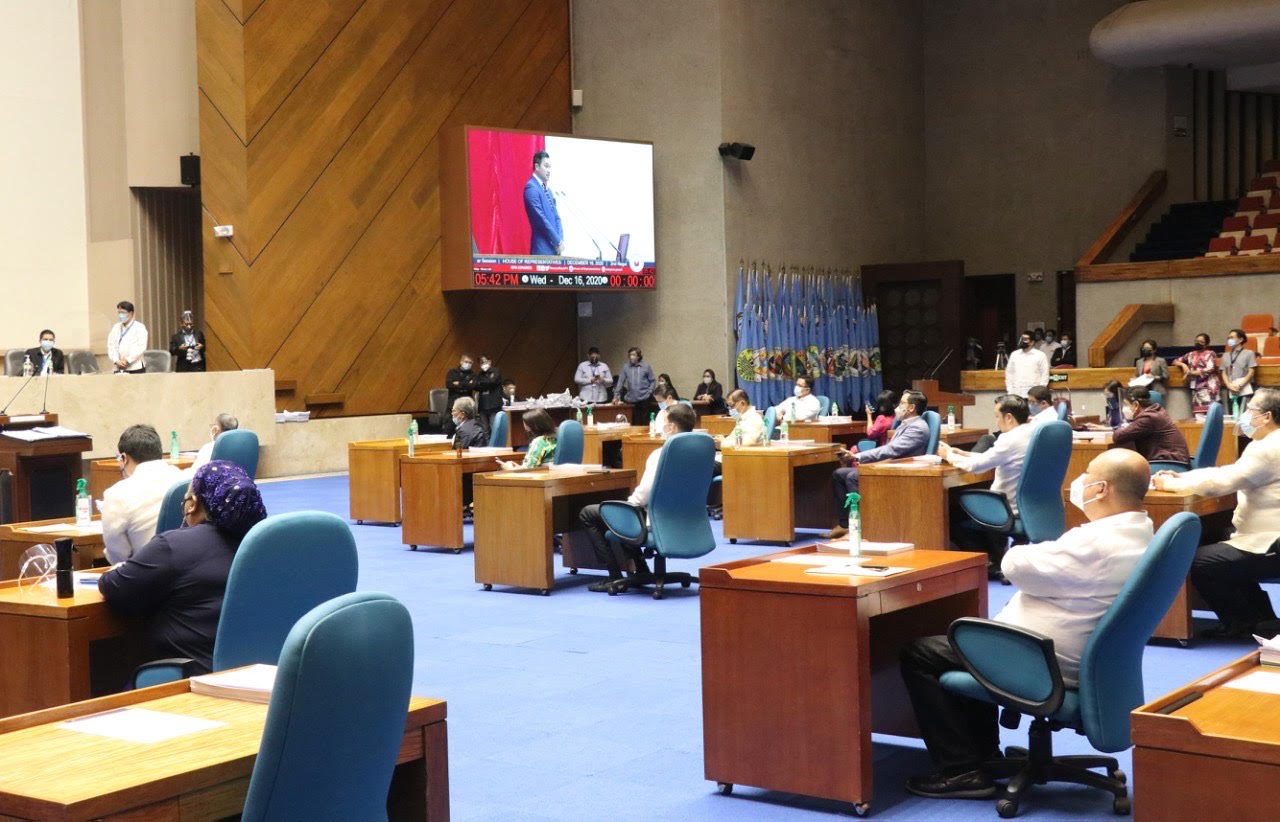
Lawmakers are currently pushing for foreigners to gain more equity in several Philippine industries, as the country struggles to recover from the pandemic’s economic impact.
Business groups, in general, have supported relaxing the strict economic provisions in the nation’s foremost document, provided that lawmakers do not touch the political provisions. (READ: Businesses caution against using charter change vs pandemic)
But just how strict is the Constitution? And is now really the time to talk about critical changes, just a year before President Rodrigo Duterte steps down from office?
Numbers
The Philippines currently ranks 4th out of 84 countries in the foreign direct investment (FDI) regulatory restrictiveness index by the Organization for Economic Cooperation and Development.
Most of the Philippines’ peers like Vietnam, Myanmar, Singapore, and Cambodia, are at the bottom half of the list.
“The Philippines is perceived by the international investment community as the most restrictive among the ASEAN (Association of Southeast Asian Nations) countries,” Finance Secretary Carlos Dominguez III said.
This strictness, Dominguez said, affected the country’s inflows of foreign direct investments.
Out of the 10 countries in ASEAN, the Philippines ranked 7th in terms of average FDI inflows relative to gross domestic product (GDP) from 2015 to 2019.
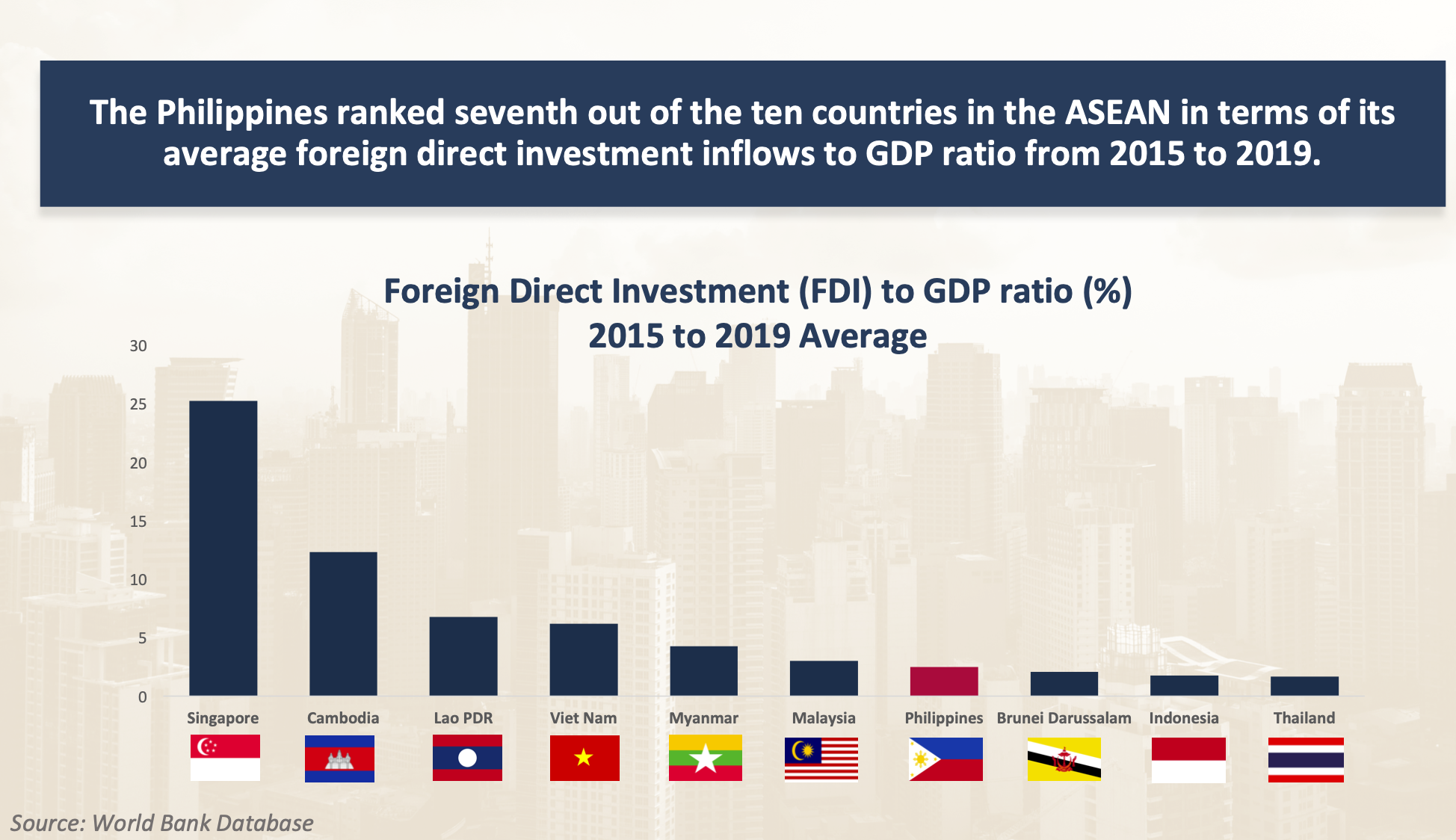
Recently, Vietnam has overtaken the Philippines in terms of GDP growth, as it opened up its economy and pushed for more market-oriented legislation.
Looking at sectors, only the Philippines imposed a 40% equity restriction in agriculture, mining, electricity, waste management, telecommunications, and education.
“Restrictions in the ownership and operation of public utilities stunts the technological development and modernization of the sector at the cost of losing much needed efficiencies and cost reduction in logistics,” said Trade Secretary Ramon Lopez.
The Philippines, as well as Indonesia and Vietnam, are the only countries in East Asia and the Pacific that do not allow foreigners to hold equity in media companies.
Vietnam, the country considered the most comparable to the Philippines, caps equity on agriculture, mining, electricity, waste management, and telecommunications. But the limits are above 50%, which means foreigners can gain majority stake in these industries.
Meanwhile, Singapore, considered the most developed in the region, imposes limits only on media and, to some extent, transportation.
Cambodia, Papua New Guinea, and Solomon Islands are considered the most relaxed, as they allow all of their major industries to be fully-owned by foreigners.
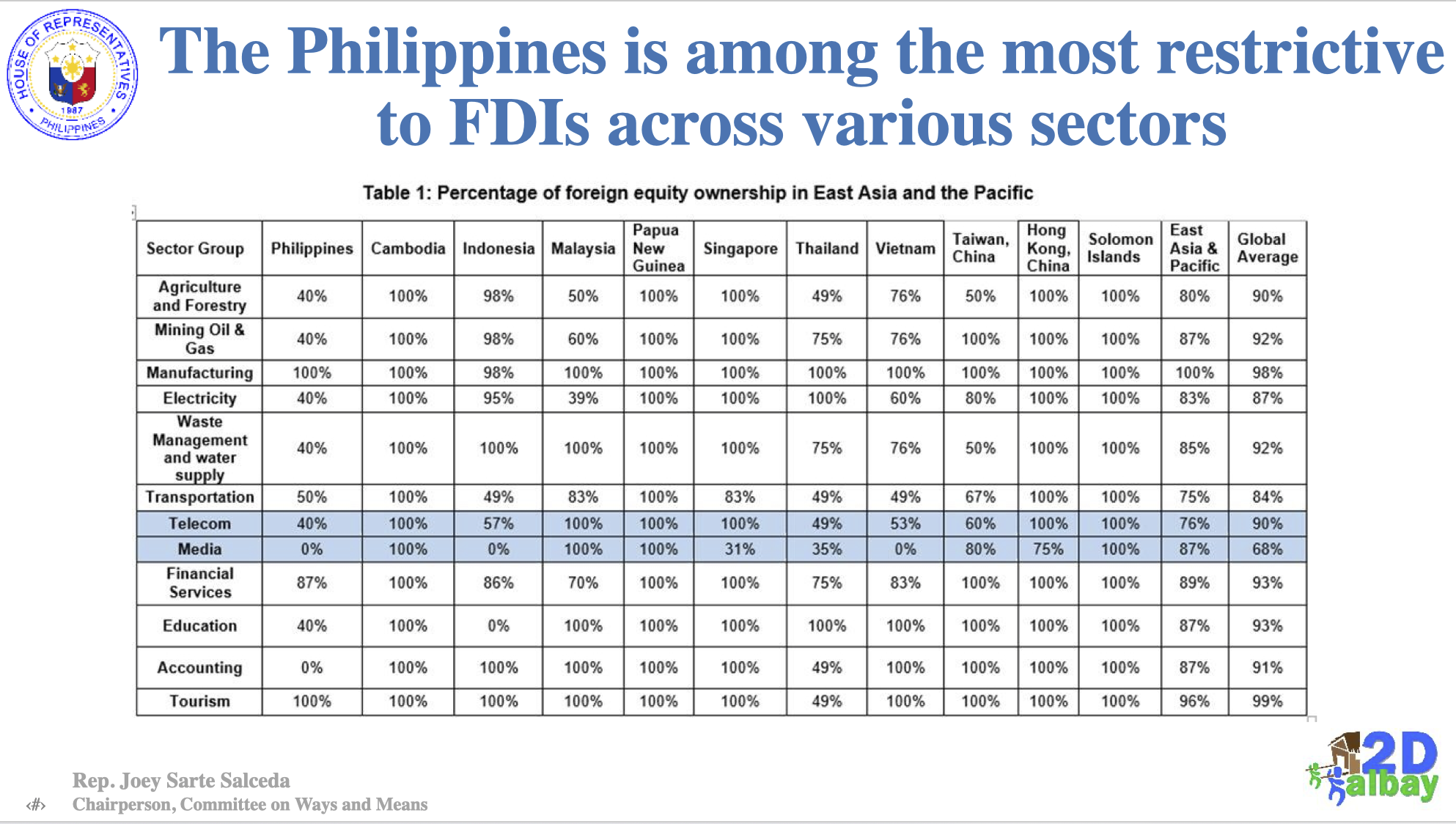
Why are the restrictions there in the first place?
Bernardo Villegas, a member of the Constitutional Commission that drafted the Philippine Constitution in 1986, admitted that political turmoil at that time affected the content of the Constitution.
“I must admit… instead of writing the fundamental law of the land in 1986, we actually wrote a very long piece of legislation,” said Villegas, who headed the national economic committee during that time.
“At the time we were writing the draft, we were agitated, even traumatized during what happened during the EDSA revolution and the 10 years of Martial Law of mismanagement and corruption that constantly, during the entire deliberations, we were trying to prevent the abuses of the Marcos administration.”
He noted that the framers of the Constitution added “so many minute” details that “do not deserve” to be in there.
Is charter change really the magic bullet?
Think tanks like Ibon Foundation have countered moves to liberalize the Philippine economy.
In a discussion paper, Ibon Foundation noted that increasing FDI is “not in and of itself necessary for development.”
For instance, South Korea and Taiwan were able to develop their economies in the 1970s and 1980s with less FDI than what the Philippines is getting today.
The think tank also noted that despite FDIs pouring in for decades, the Philippines has still not developed any Filipino electronics, shipbuilding, or natural gas industries. (READ: How Duterte lawmakers are overselling economic Cha-Cha)
They also noted that FDI restrictiveness and FDI inward flows are strongly correlated.
The research group stressed that foreign capital can contribute to development, but “responsible government intervention and regulation is needed to create meaningful linkages and long-term benefits for the economy.”
In a previous hearing, National Scientist Raul Fabella said that relaxing the economic provisions “will not create a tsunami of inward foreign investment.”
He noted that the high cost of electricity, red tape, and judicial reform play a big part in attracting investments.
What about women?
Meanwhile, Center for Women’s Resources executive director Cielito Perez doubts economic charter change being pursued in Congress would help improve the plight of Filipino women during the coronavirus pandemic.
She argued that while the Philippines already has existing laws aiming to liberalize certain industries to allow more foreign investors – like the Foreign Investments Act of 1991 and the Rice Tariffication Law – job opportunities for women “remain a concern.”
“There are already several measures that essentially aim to liberalize and open up the country to foreign investments…and yet job opportunities for women remain a concern. And for those who find work, the available jobs remain low-skilled and labor-intensive and non-regular,” Perez said.
Groups have urged government to spend more to fight the pandemic rather than tinker with the Constitution as its effects would be more immediate. (READ: In 2021 budget, Duterte funds dubious infra projects, no vaccines) – Rappler.com
Add a comment
How does this make you feel?
![[In This Economy] Economic charter change is very unpopular – it’s time lawmakers listened](https://www.rappler.com/tachyon/2024/04/in-this-economy-charterchange.jpg?resize=257%2C257&crop=292px%2C0px%2C720px%2C720px)
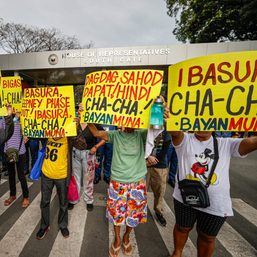
![[OPINION] The First Mode conundrum](https://www.rappler.com/tachyon/2024/03/tl-first-mode-conundrum-03232024.jpg?resize=257%2C257&crop=283px%2C0px%2C720px%2C720px)
![[ANALYSIS] Understanding the demonization of foreign capital](https://www.rappler.com/tachyon/2024/03/foreign-capital-mar-5-2024.jpg?resize=257%2C257&crop=274px%2C0px%2C720px%2C720px)
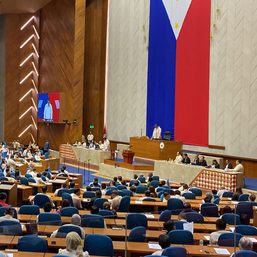
![[In This Economy] A counter-rejoinder in the economic charter change debate](https://www.rappler.com/tachyon/2024/04/TL-counter-rejoinder-apr-20-2024.jpg?resize=257%2C257&crop=267px%2C0px%2C720px%2C720px)
![[Vantage Point] Joey Salceda says 8% GDP growth attainable](https://www.rappler.com/tachyon/2024/04/tl-salceda-gdp-growth-04192024.jpg?resize=257%2C257&crop_strategy=attention)
![[ANALYSIS] A new advocacy in race to financial literacy](https://www.rappler.com/tachyon/2024/04/advocacy-race-financial-literacy-April-19-2024.jpg?resize=257%2C257&crop_strategy=attention)


There are no comments yet. Add your comment to start the conversation.